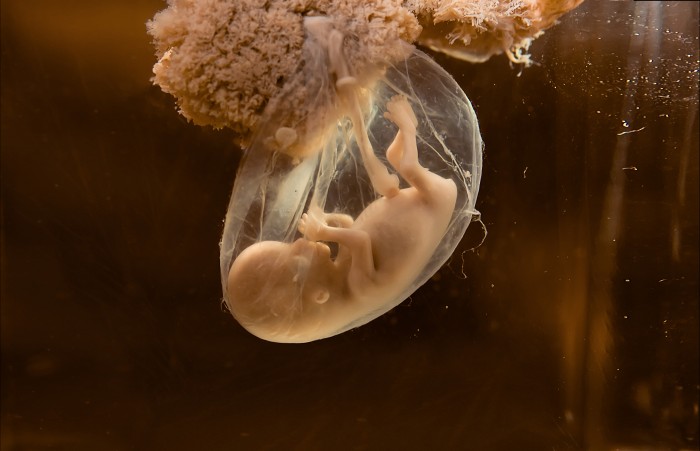Recently Senator Marco Rubio was asked the following question while campaigning in New Hampshire for the Republican Presidential primaries: “Do you believe a fertilized egg has legal protection?”
On its face, this question is silly. For one, an egg ceases to exist as a part of the woman’s sexual reproduction system after fertilization. If it is fertilized, past tense, then it isn’t an egg. It is a zygote, a human embryo, or a whole, distinct, and living human organism; choose whichever of those descriptions suits you. What you cannot call it is a fertilized egg. Also, the questioner ought to have asked, “SHOULD zygotes have legal protection,” not whether they do or not. The former is actually a question specific to Marco Rubio’s belief about the identity and value of human life. The latter is a question that could be answered by a Google search.
A young man asked a similar question of me during Q&A after a recent talk, but in a way that is more helpfully worded. How could I argue that killing something as small as a zygote or an embryo is the same as killing any of the people in this room?
Actually, the initial question was a comment that he couldn’t accept that it was wrong to kill something “this big,” at which time he held up his thumb and forefinger to indicate something about a centimeter in size.
I then asked a clarifying question. “OK, could you use your hands to show me about what size the life would have to be for you to feel comfortable with the idea that we should restrain from killing it? It would help me to know, because I suspect this is actually a level of development argument you want to make and that you don’t really determine value based on size.”
The young man did not have a specific size or level of development. He just reiterated his argument from incredulity. He couldn’t believe that he had anything morally in common with something so small. How could I or anyone believe that killing something that small, a zygote no bigger than a period on a piece of paper, or an embryo, was the same as killing a toddler or an adult?
My answer somewhat surprised him. I don’t think it is the same, at least not completely the same. There are clear differences between killing me or you or anyone else in this room and killing nascent human life. But recognizing those differences in no way undermines the central argument of the pro-life position that I presented.
In one very important way, the acts of intentionally killing a human embryo or killing me are equally wrong. No matter which one of us is killed, it is the unjust taking of an intrinsically valuable human life. That said, the act of killing me carries additional wrongs not shared between the two. Both the embryo and I are human. I am also a husband to my wife, a father to my young children, a co-worker, a teacher, a friend, etc. Killing me would impact all of those people and my community in ways that killing the embryo would not. These are all additional wrongs to killing me. It is certainly true that killing an embryo and killing me are not exactly the same when those additional wrongs are considered. Those considerations and additional wrongs don’t make the basic act of intentionally and unjustly taking the life of another human being less morally problematic in its own right.
As Christopher Kaczor points out in The Ethics of Abortion, killing the President of the United States is an act that clearly carries additional evils to killing someone like me. International relationships, the stability of our national government, the mourning of millions of people – all of these realities would be absent if I were killed. However, the moral crime of killing the President as a human being is the exact same as killing me as a human being. His position in our community is of much greater importance than my own, but we are both intrinsically valuable by virtue of our humanity in the same way.
I offer this answer, then. Yes, it is the same in that both the embryo and I are whole, distinct, and living human organisms that other members of the human family should refrain from killing. It is correct to recognize that there can be additional wrongs to killing one person versus another, but that is true in almost every case. Those additional wrongs are just that – additional to a central shared wrong, the unjust taking of an intrinsically valuable human life.







